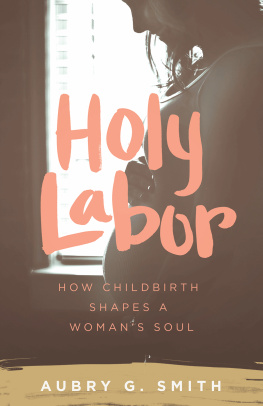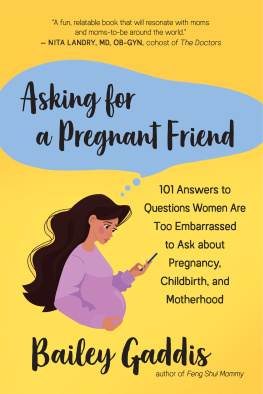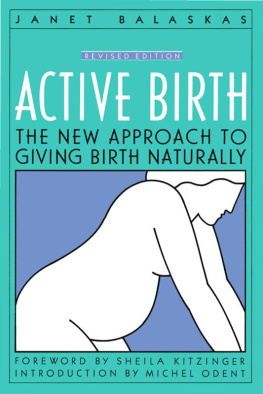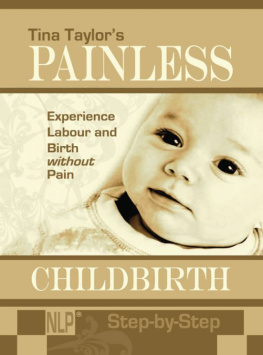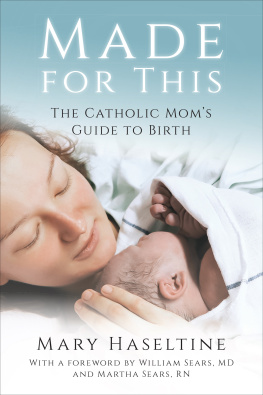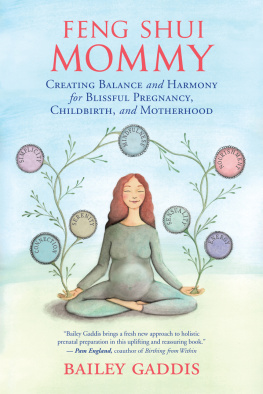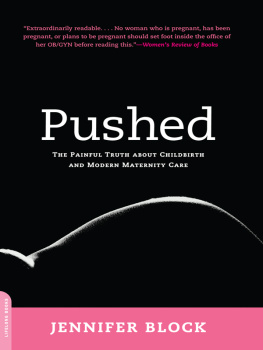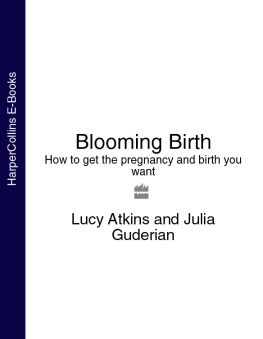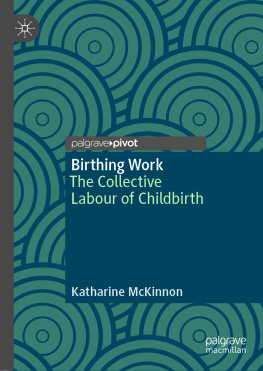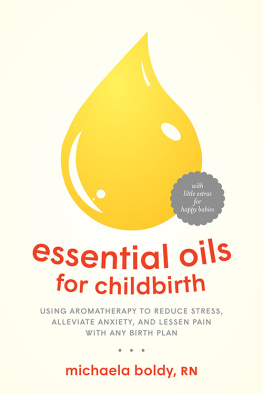Holy Labor
HOW CHILDBIRTH SHAPES A WOMANS SOUL
AUBRY G. SMITH

Holy Labor: How Childbirth Shapes A Womans Soul
Copyright 2016 Aubry G. Smith
Kirkdale Press, 1313 Commercial St., Bellingham, WA 98225
Visit us at KirkdalePress.com or follow us on Twitter at @KirkdalePress
You may use brief quotations from this resource in presentations, articles, and books. For all other uses, please write Kirkdale Press for permission. Email us at .
Unless otherwise indicated, Scripture quotations are taken from THE HOLY BIBLE, NEW INTERNATIONAL VERSION, NIV Copyright 1973, 1978, 1984, 2011 by Biblica, Inc. Used by permission. All rights reserved worldwide.
Scripture quotations marked ESV are from the ESVBible (The Holy Bible, English Standard Version), copyright 2001 by Crossway Bibles, a publishing ministry of Good News Publishers. Used by permission. All rights reserved.
Scripture quotations marked KJV are taken from the King James Version of the Bible. Public domain.
Italics in Scripture quotations are the authors emphasis.
Print ISBN 9781577997382
Digital ISBN 9781577997399
Kirkdale Editorial: Abigail Stocker
Cover Design: Christine Gerhart
For my childrenBreckon, Kian, and Edenin
whose births Ive seen the glory of God.
And in memory of my mother, Pamela Grace Lambert,
who labored with God to bring me life.
Contents
The Most Painful Experience in the World
A strange feeling came over me during my Cell Biology lecture one October afternoon during my final semester of college. I hadnt missed my period yetit was due to come in four daysbut somehow I knew it wasnt going to come this month. When the lecture ended, I hurried to the nearest store to buy a pregnancy test. A few minutes later, the strange feeling was confirmed: I was pregnant.
I felt I was shiftingnot just in the newly joined cells implanting in my uterus but in everything that made up my life. I was growing a new life in my body and preparing to bring it into the world. I could sense the significance, but I had no words for the experience. I was finishing my undergraduate degree in biology, but the scientific language I had learned about pregnancy and birth wasnt quite sufficient. I was double majoring in Christian studies, but none of the theology books I had read discussed pregnancy or childbirth in depth. Searching for vocabulary and meaning, I spent those months in deep introspection, my hand on my growing belly in wonder. Despite my nausea, sciatica, and insomnia, the pregnancy was full of excitement and anticipation for both my husband and me. Would our baby be a boy or girl? What would our childs personality be likedid these kicks and rolls give us any hints? How would our lives be changed, expanded, and enriched by this little human? Pregnancy and parenthood were bursting with possibility.
However, my thoughts concerning childbirth were different. If someone had asked me how I felt about childbirth, I would have said, Its the most painful experience in the world! The only way I knew to view birth was through the lens of fear and pain. Veteran moms shared their war stories of excruciating contractions, hours of pushing, and emergency cesareans. Most women I knew chose an epidural, certain they could not handle the physical pain of labor. My own mother, who gave birth to five children, patted my hand and said, Ask for Demerol. Its fabulous. Everything I heard about childbirth was based in fear and the expectation of unbearable pain. These war stories confirmed my beliefs about childbirth: Its the worst experience in the world, and a mothers job is merely to survive it.
While not against pain relief (Im no martyr!), I felt uneasy about this common understandingthat women could not bear what God designed their bodies to do. I fumbled as I tried to merge theological and biological information. It seemed a given that God had cursed Eve and her daughters with pain in childbirth for her sinisnt that what says? Who can escape Gods judgment? I felt as if I should forego any pain relief during labor to avoid somehow thwarting Gods judgment-related purposes for childbirth.
Filled with dread for my due date, I decided on a medication-free birth, determined to grit my teeth and bear the pain to please God somehow. My first labor conformed to my expectations: My first childbirth experience was frightening and painful. I began telling my own birth war story to expectant moms, assuming all mothers were doomed to bear the agony of childbirth. In my conversations with expectant moms I perpetuated the narrative of an angry God inflicting horrific pain on women, possibly sealing their expectationsand experiencesof childbirth with the same dread and resignation.
Childbirth in the Life of the Church
Most women will become mothers, and many sense that from the moment of conception all the way through parenting, every aspect of their mothering matters. Its a trend highlighted in recent years by increasingly extravagant birth-related celebrations in the West. The budding traditions of elaborate pregnancy announcements, clever gender-reveal parties, baby showers, blessingways (mother blessings), and whimsical photography of newborns and new parents signal more than that too many women are on Pinterest. These milestonesthe discovery of a pregnancy, the revelation of the gender, and the transformation of a man and woman into a father and motherare life-changing moments that should be celebrated.
The church should embrace these milestones and find meaningful ways to honor and celebrate birth. Beyond community celebrations, though, the church should consider the profound implications of transformation, new birth, and raising childrenboth literal and metaphoricalwithin the fold of faith. In general, the church has little to say to women preparing for childbirth. While women can bring their medical concerns to trained caregivers, where should expectant mothers take their fears, their desire to honor God in birth, and their questions about how to view a God who created childbirth this way? While resources on biblical parenting abound, there are virtually no resources for Christian women who want to explore the significance of childbirth through a biblical lens.
Instead, booksprimarily by New Age or secular birth expertsteach them to find strength within themselves, look to their inner goddess, and form a cosmic union with the universe. While Christians recoil at such teachings, the practical birth advice given in many of these books is sound. Women who follow such advice often report reduced or no pain in childbirth as well as a satisfying, and even spiritual, transformative birth experience. While secular and New Age birth experts cannot promise easy labor for all women, they do promise more dignity and peace for the laboring mother than current Christian assumptions about childbirth provide.
Does the Bible have nothing to say about facing fear, suffering for the sake of bringing someone life, finding purpose in pain, experiencing peace, or childbirth in general? How should Christians view birth?
Childbirth and Theology
Throughout the history of the church, theology has been predominantly written and taught by men who overlooked the significant and prevalent theme of childbirth in Scripture. Worse, church leaders of the past taught that the childbirth experience was Gods judgment on women. The church often marginalizes todays discussion about childbirth as a womens issue, perhaps derisively so by those who have relegated it to feminist theology. Thus there is no robust theology of childbirth within the church.

